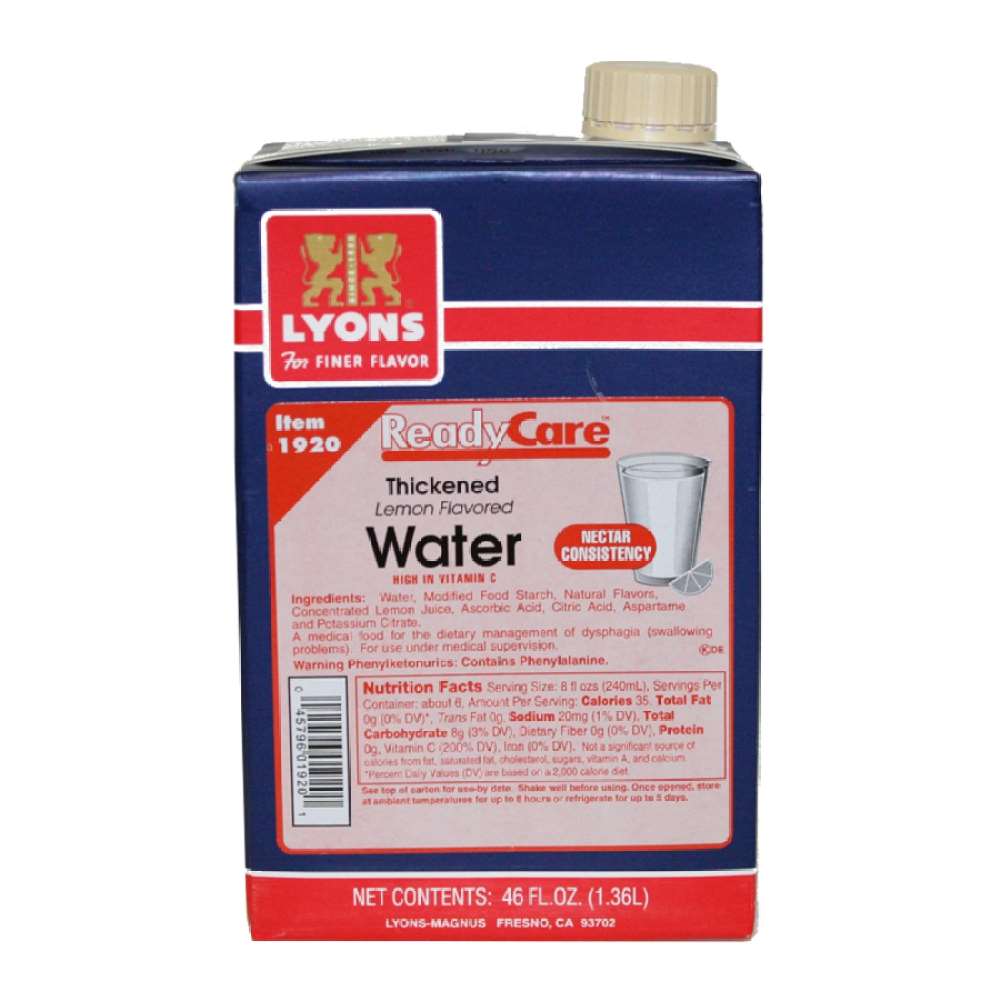
There are multiple interventions that have been utilised in the management of dysphagia, which extend from texture modified foods and thickened fluids, swallowing therapy, drug therapy, neuromuscular stimulation, and botulinum toxin therapy. Without treatment, dysphagia is known to be associated with respiratory complications including aspiration pneumonia, malnutrition, hospital admission and increased mortality. Oropharyngeal dysphagia is a common condition, particularly amongst older people and those with underlying neurodegenerative conditions and non-neurological (head and neck cancer) diseases. Impairment in any component may lead to a disorder or symptom characterised by difficulty in swallowing, termed dysphagia.

Nectar thick liquids series#
Swallowing is a complex series of neuromuscular events. He reported tolerating a normal diet including thin fluids. The patient was followed up via telehealth by the speech pathology and medical teams. While he was advised to remain on thickened fluids, his intense dislike of this therapy resulted in him self-upgrading to thin fluids and accepting the potential aspiration risk.

4 days later the patient discharged against medical advice and subsequently did not undergo a planned instrumental swallow assessment, which was scheduled for the following day. On day three of his hospitalisation, the medical team identified signs and symptoms of dehydration and the patient was commenced on small quantities of thin fluids (water only) in between meals. Subsequently, he was prescribed moderately thickened fluids and a purée diet. There were also documented clinically overt signs of aspiration with thin fluids. On hospital admission he was assessed by the multidisciplinary allied health team and found to have moderate oropharyngeal dysphagia, characterised by reduced oropharyngeal coordination, reduced bolus control and variable timing of pharyngeal swallow. Previously he had been assessed by a speech pathologist in the community, and prior to hospitalisation his diet consisted of a regular diet and fluids. He had a past medical history significant for Guillain–Barré syndrome and gastro-oesophageal reflux disease. This is more like the consistency of pudding.An 86-year-old male was admitted to hospital with an infective exacerbation of his idiopathic pulmonary fibrosis and delirium. Spoon thick liquids are more solid and will remain on the spoon when the spoon is tipped.

Nectar-like or mildly thickened liquids have a consistency that will still run off a spoon.The amount a fluid that should be thickened is usually determined by the severity of dysphagia.

An example of a naturally thicker liquid (higher viscosity) would be buttermilk. In addition to water, examples of thin liquids include soda, coffee, juice, and soup broth. In order to prevent aspiration in at-risk people, additives can increase the viscosity (thickness) of a fluid. Thin or low viscosity liquids such as regular water pose the greatest risk for choking and aspiration to individuals with dysphagia.


 0 kommentar(er)
0 kommentar(er)
